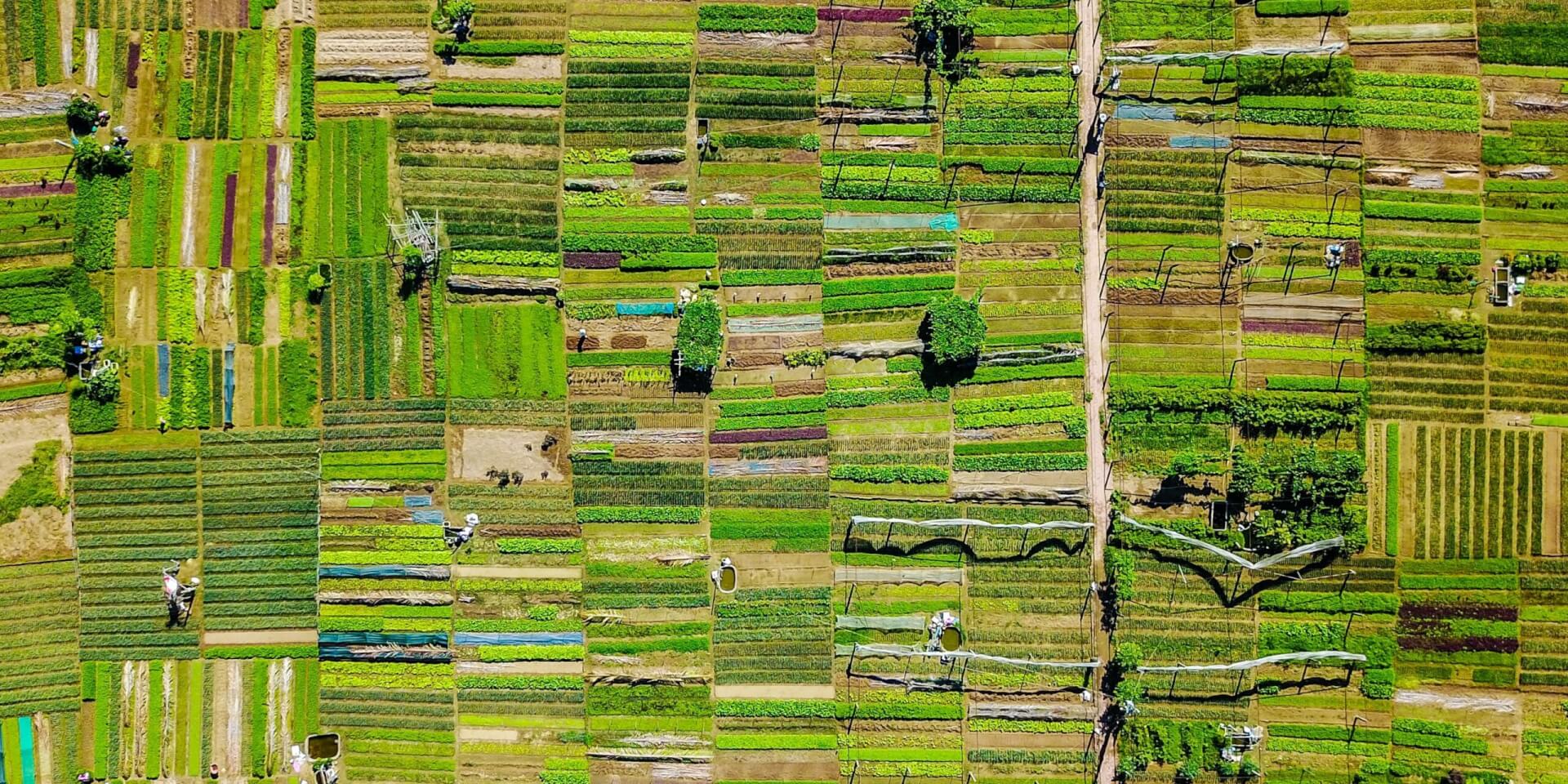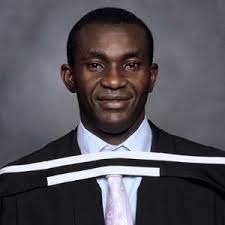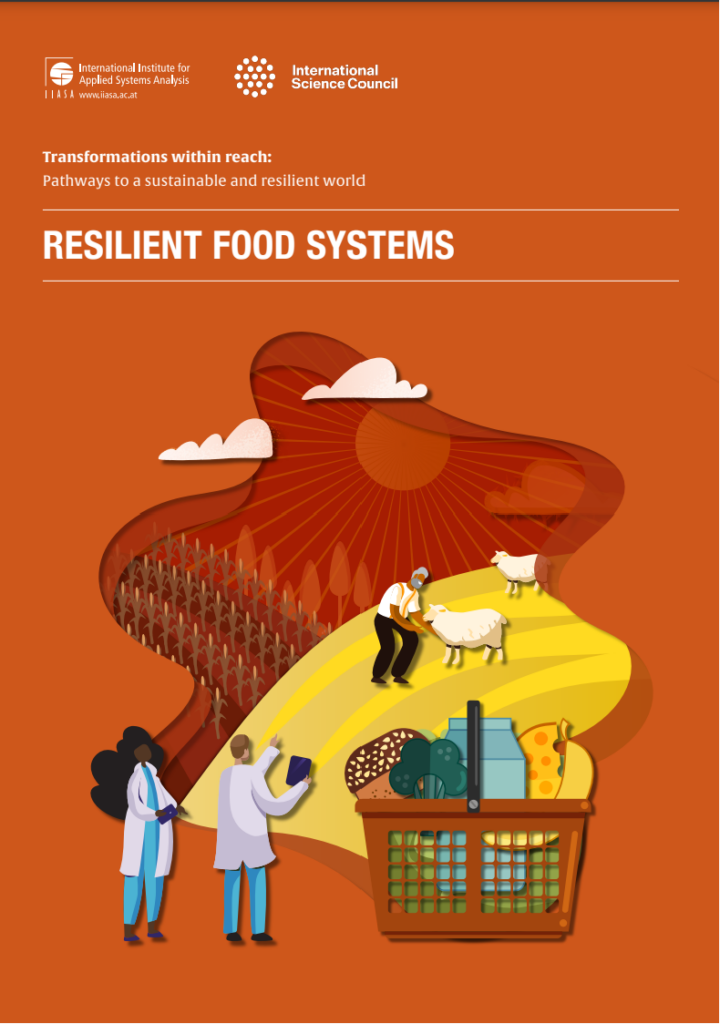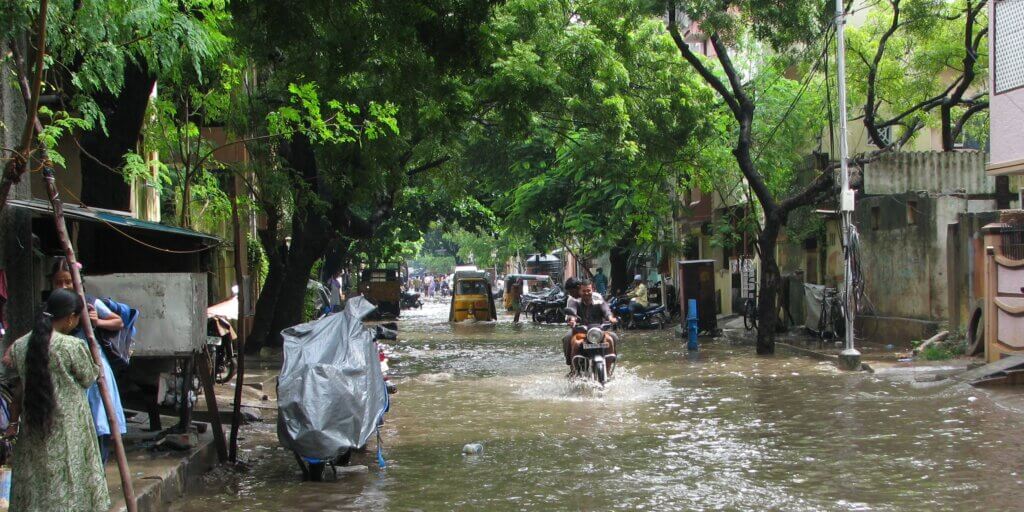
This article is a part of the International Science Council ongoing initiative to showcase the perspectives of Early and Mid-Career Researchers (EMCR) from diverse corners of the world and various disciplines in climate sciences. The series began during the World Climate Research Program (WCRP) Open Science Conference and extends through COP 28, aiming to amplify the perspectives of young voices on climate action.
As we ponder the uncertainty of tomorrow’s climate, millions are already grappling with its tangible impact today. Despite being discussed at length within the multilateral space, climate change debates tend to hover in the realms of temperature targets and divisive debate around phasing down or out of fossil fuels, often overlooking problems needing solving right now.
One such critical area is agriculture: a major pillar of the African economy, contributing significantly to the GDP of the continent and employing a substantial portion of its population. As Dr. Egbebiyi highlights, about 35% of the African continent’s Gross Domestic Product (GDP) relies on agriculture with some countries like Sierra Leone contributing almost 60%.
Furthermore, according to the World Bank, as of 2022, one in five Africans suffer from food insecurity. With the continent’s heavy dependence on rainfall for the agricultural sector, climate change’s escalating effects on temperature and precipitation pose severe threats. Paired with the expected forecast for Africa’s population to double by 2050, for Dr. Egbebiyi, rethinking climate resilience, especially in sectors like agriculture, is paramount.
This realization prompted Dr. Egbebiyi to redirect his interest to climate impact modeling. Having recently completed his PhD in Regional Climate Modelling and Agrometeorology at the University of Cape Town, he seeks to better understand the effects of climate change and to propose alternative solutions for agriculture.
Climate research has been formidable in its ability to unite scientists all around to work collectively on a global problem. However, the world’s climate research still has significant blind spots; the biggest gaps are with respect to women and the Global South.
While mitigation climate research is extremely important, adaptation research is becoming more and more needed as regions around the world are hit with extreme climate events linked to climate change.
With economic and food security struggles looming, research for how climate change will affect the agricultural sector in Africa is key to adaptation strategies. Dr. Egbebiyi cautions against extrapolating solutions from one country to another, and instead recommends to investigate the impacts and the effects on a smaller scale. What works for one country in Africa will not work in another; research needs to be done on local and regional scales.
Although climate models are available globally, the Global South suffers from low-resolution data. The level of resolution has a direct impact on how clear and accurate the climate model is. The better the resolution, the more localized the insights and the more accurate the simulation and management.
The issue of low-resolution data plaguing the Global South becomes exacerbated when considering climate change mitigation and adaptation measures. He cites the example of reforestation, which can have varying results and even unintended consequences due to regional differences. In some cases, it can have a negative effect on rainfall in certain regions, despite helping in others.
In a recent paper, Dr. Egbebiyi studied the potential impact of climate change on cropland suitability in Africa, examining how climate change will impact crop suitability and planting seasons across different Shared Socio-economic Pathways (SSPs). The study covers three crop types across Africa, chosen for their economic importance in the area: cereals (maize), legumes (Cowpea) and root and tuber (Cassava). It highlights how crops that are currently suitable for the environment now might need different cultivation techniques or might be entirely unsuitable later.
When considering climate change mitigation measures that could result in irreversible changes on a global scale, such as solar modification, the stakes are heightened, and understanding the potential side effects becomes paramount. What are the varied implications for different agricultural sectors? Which populations stand to gain, and which might bear the brunt of unintended consequences? How can policymakers plan ahead to mitigate inequalities arising from these changes?
Beyond divisive debates surrounding the benefits and risks associated with emerging technologies, Dr. Egbebiyi emphasizes the importance of shifting attention toward comprehensive research for a nuanced understanding of the effects. This echoes the call for a moratorium on artificial intelligence (AI) made by some experts and policymakers.
As an early-career researcher, Dr. Egbebiyi sees reasons to remain hopeful: climate change knows no borders, providing an opportunity to catalyze collaboration between the Global North and South. This collaboration can foster synergies and make use of both top-down and bottom-up approaches. Diversity and transdisciplinarity are crucial for a holistic understanding of climate change. This necessitates the inclusion of social sciences and the integration of various forms of knowledge, including local and indigenous peoples’ knowledge, to craft solutions tailored to each region. It also requires the involvement of policymakers to facilitate the adoption of science-based policies and decisions.
As we reassess our understanding of resilience, it becomes evident that the journey ahead is not merely about weathering the storm but fundamentally redefining the way we generate knowledge: serving people, providing accessible information, and guiding policymakers.

Postdoctoral Research Fellow at Climate System Analysis Group (CSAG), Environmental and Geographical Science Department, University of Cape Town.
Dr. Egbebiyi is a climate scientist specializing in regional climate modeling, crop modeling, and the study of climate extremes and their impacts on agriculture and health. His primary passion lies in leveraging his expertise in climate research to contribute valuable information that can influence and inform policymakers in their decision-making. He aims to assist in the selection of adaptation strategies to enhance food security, working towards the sustainable development goal of Zero Hunger, particularly in Africa.

The report argues that the emphasis on efficiency, which has been driving to a large part the evolution of food systems, needs to be counter-balanced by a greater emphasis on resilience and equity concerns. As illustrated by the pandemic this entails expanding the scope and reach of social safety nets and protection schemes. It also includes assessing and where necessary adjusting supply chains and trade in their capacity to absorb and adapt to a multitude of risks.

The human dimension of disaster risk reduction: social sciences and climate adaptation
In this article, Dr. Roché Mahon, a social scientist specialized on climate, highlights how social sciences can effectively improve climate adaptation and ultimately save lives.

Global solidarity for climate justice: perspectives from an early-career researcher
In this article, Dr. Leandro Diaz, a climatologist from Argentina, shares his perspective on global solidarity for climate justice.

From monsoon joy to fear: a climate crisis awakening
In this article, Dr. Shipra Jain, a physicist and climatologist from India, bares her heart on climate change and its impacts on society.
Disclaimer
The information, opinions and recommendations presented in our guest blogs are those of the individual contributors, and do not necessarily reflect the values and beliefs of the International Science Council